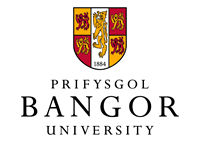Fully-funded PhD Studentship: Examining the effects of psychological resilience interventions on recidivism in young people who offend
Applications are invited for a fully funded PhD studentship under the supervision of Dr. Stuart Beattie in the School of Human and Behavioural Sciences at Bangor University, Wales.
Hours: Full or part-time, commencing in October 2022.
Funding amount: The studentship covers the full cost of tuition fees, plus a tax-free maintenance stipend of approximately £15,609 per annum. Studentships are available as either ‘1+3’, ‘+3’, or their part-time equivalent.
Residency requirements: Both home and international (including EU and EEA) students are eligible, subject to general eligibility requirements (see UKRI web-site). Successful international applicants will receive a fully-funded Wales DTP studentship and will not be charged the fees difference between the UK and international rate.
Supervisor: Dr. Stuart Beattie
Project: This PhD project is a collaboration between Dr. Beattie and the Youth Justice Service (YJS) for Gwynedd and Môn and is part of an established research program to develop research-informed, theoretically driven psychological resilience interventions for young people, with the aim of reducing recidivism. Psychological resilience interventions also hold promise for reducing social inequalities, increasing community cohesion, reducing unhealthy coping strategies (i.e., drink and drugs), and enhancing well-being, mental health, and positive pro-social behaviours. This PhD would extend this line of work both within Gwynedd and Môn and to all counties across North Wales, increasing both the research base and training opportunities. Dr. Beattie will provide extensive research training, while the YJS will provide access to their training resources, case workers (who will be your main point of contact), guidance in navigating the complex web of involved services, and excellent opportunities for knowledge exchange and scientific outreach.
Please read the full details here.
Essential Skills: The successful applicant will have:
· A Master’s degree and/or a first-class or good upper second-class undergraduate degree in a relevant discipline (e.g., psychology, sport and exercise science, social science).
· Relevant psychology and/or clinical knowledge and interest
· A strong work ethic and genuine enthusiasm for translational research.
· The ability to work both independently and cooperatively.
· The ability to communicate effectively, with evidence of strong scientific writing skills.
· A willingness to engage with and work directly with non-academic partners (e.g., attend trainings, support public outreach activities)
Desirable Skills:
The following are desirable but not essential skills. Applicants are still very much encouraged to apply even if they do not possess any of the below:
· Experience designing and running human experiments and/or designing psychological interventions
· Clinical psychology experience, especially with at-risk youth.
· Interest in and/or experience with working with young people.
· Experience analysing experimental data.
· Experience of scientific outreach
Apply now: Before applying, please contact Dr. Stuart Beattie – [Email Address Removed]. Applicants should take careful consideration of the working title and description of the project in preparing their application and Dr. Beattie will be able to describe this in more detail. All applications submitted on Bangor’s online system must include:
1.) a current CV (2 pages maximum),
2.) a 1-2 page cover letter explaining your motivation to apply for the PhD position (this should also include a description of how you meet the required and desired skill set and particularly how your skills and experience relate to the project)
3.) a research proposal (1,000 words maximum),
4.) 2 academic references, and
5.) if relevant, proof of English Language Competency (7.0 IELTS minimum).

 Continue with Facebook
Continue with Facebook



